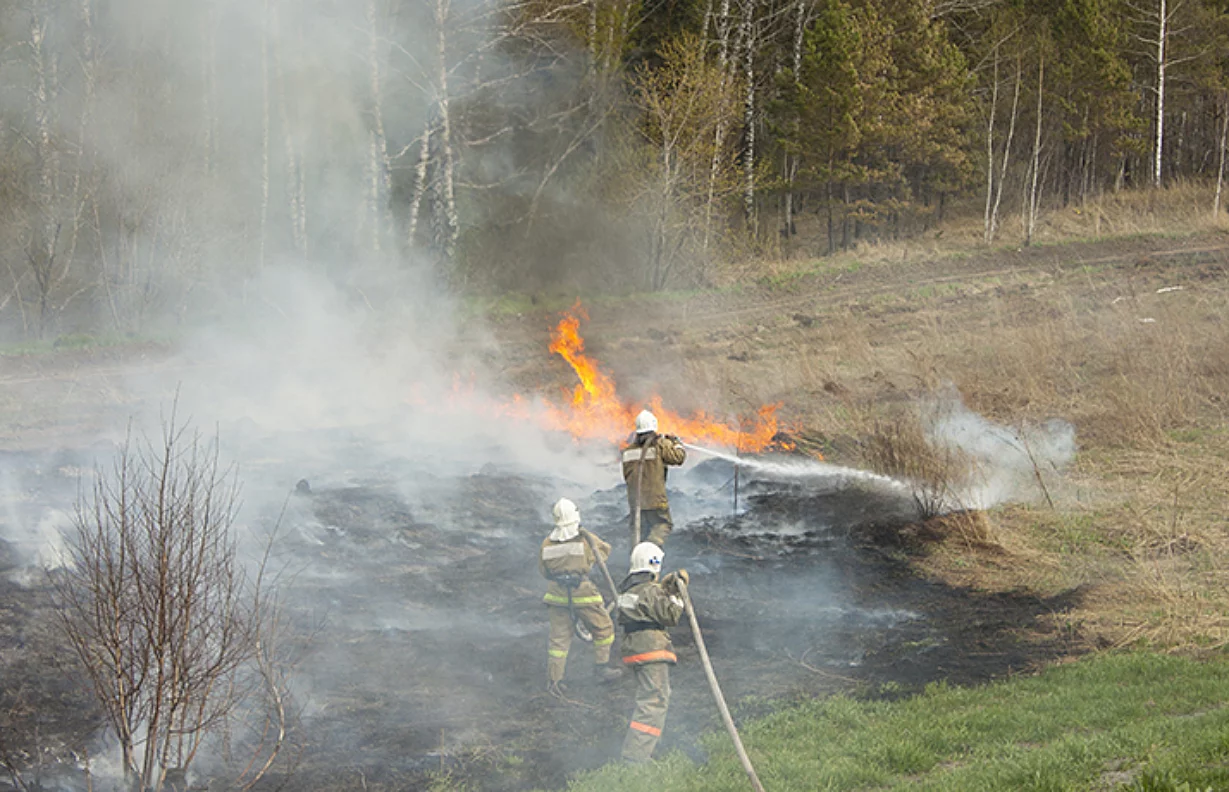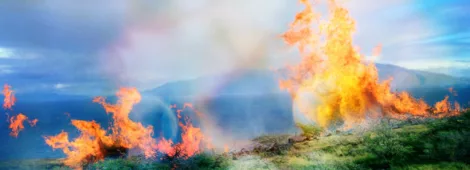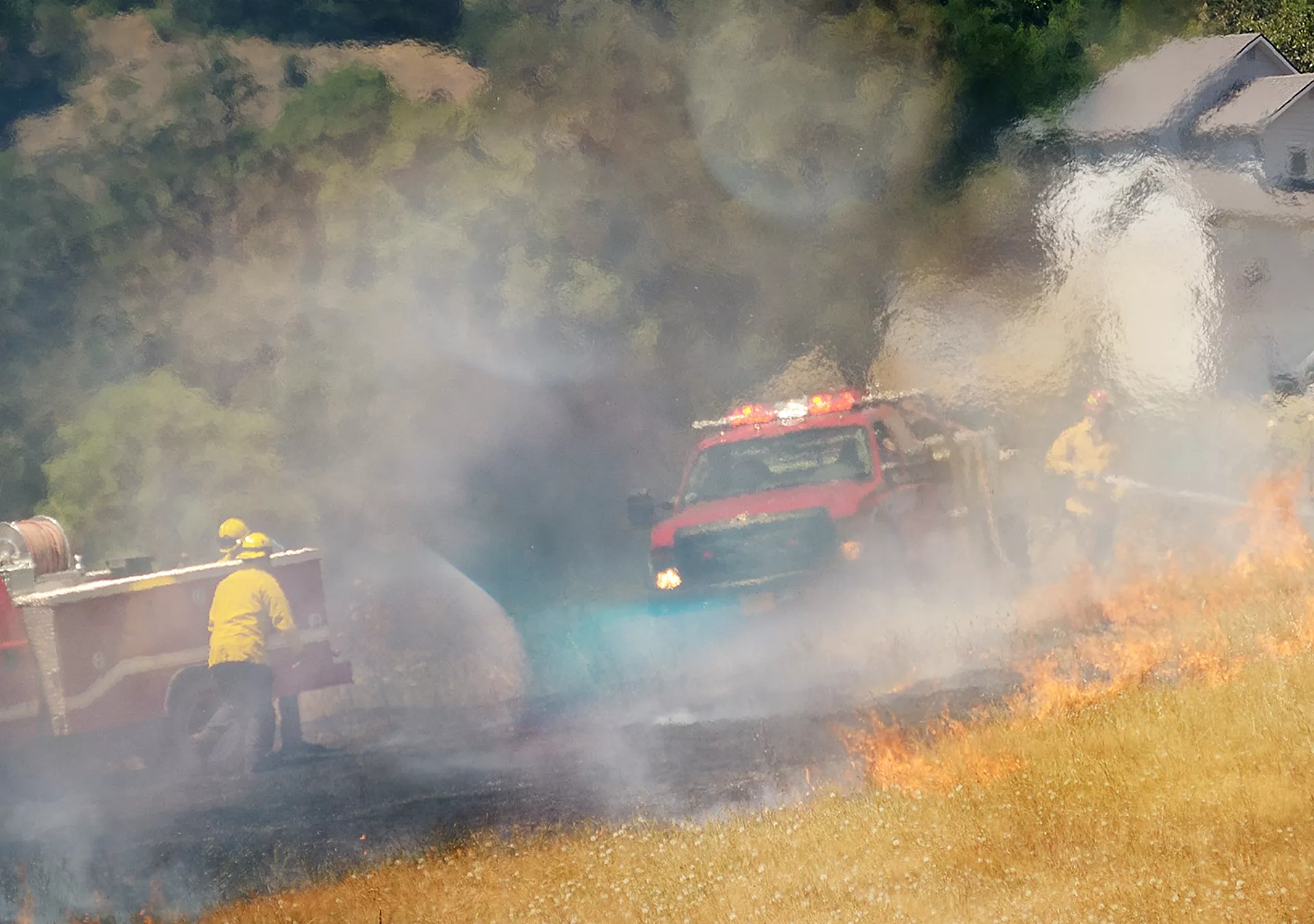
Wildfire Risk Mitigation
Development and recreation within our natural environments are contributing to an increased risk of wildfire and its negative impacts to life and property.
Resilient + Integrated Wildland Fire Solutions
Development and recreation within our natural environments are contributing to an increased risk of wildfire and its negative impacts to life and property. When combined with increasingly dynamic climate cycles, our natural world and communities remain at risk without informed preparation. Our team of 500+ diverse specialists are committed to supporting the resiliency of people, properties, assets, and operations through an increasingly complex range of hazards, risks, and vulnerabilities due to wildland fires.

Wildfire Hazard, Risk + Vulnerability Assessments
Our wildfire risk mitigation and resilience experts support preparedness, planning, response and recovery strategies, incorporating the latest research in wildfire science, climate change, disaster management and fire engineering. Our hazard, risk, and vulnerability assessments account for spatial and non-spatial physical, social, economic, and ecological factors. This approach provides our clients with a holistic understanding to support decision-making, adaptive solutions and long-term resiliency at parcel, neighborhood, enterprise, county, and regional scales.

Wildfire Mitigation Plans
Our team not only shapes and supports the development of core regulations for wildfire safety, but we also develop custom Wildland Urban Interface (WUI) strategies, Community Wildfire Protection Plans (CWPP) and private, business and utility protection plans to support the preservation of land investments, economies and communities. We go beyond vegetation management and property protection to encompass prevention, preparedness, response, and recovery by collaborating with federal, state, tribal, and local jurisdictions, law and emergency response agencies, fire-safe councils, community groups, foresters, land resource managers and the general public.

Wildfire Evacuation Planning + Analysis
In response to the increasing scale, severity, and frequency of wildfire events and the impacts on life safety and critical infrastructure, our team partners with transportation planning experts, evacuation researchers and social scientists to develop an integrated approach to assessments and wildfire evacuation planning. We work with fire, police, emergency services and community organizations to understand vulnerabilities and capacities in the event of a wildfire and effectively communicate with, safely refuge or evacuate residents, visitors, and members of the public.

Wildfire Research, Testing + Evaluation
Understanding the complex nature of wildfires and their impact on the built environment, resources, and people requires strong links to academic institutions, monitoring of the latest wildfire science, and foundational research and testing with local and national partners. Our commitment to these relationships and the culminating research evolves with the changing climate, human development patterns and complicated interactions of the human-environment systems and needs.

Wildfire Post-Fire Investigations
Our forensics and wildfire teams provide support investigating wildfire incidents for the insurance industry, government agencies, and other private entities. We provided investigation and analysis for many of the nation’s largest wildfires, including the Woolsey Fire, Thomas Fire and Camp Fire in California, the Bastrop Complex Fire, the Corsicana Fire, the Twisp Wildfire in Washington and the Saint Mary’s Mission fire. Our experts’ depth of knowledge is based on applicable experience navigating the nuances of wildfire investigation, litigation and other post-fire evaluations.
RELATED INSIGHTS + RESOURCES
Project Profiles

The Marshall Fire
Our experts provided a detailed post-fire forensics investigation to determine the origin and cause of the incident, and a wildfire risk assessment to evaluate building performance during the fire.
MEET OUR EXPERTS
Current PhD Student, Wildfire Resiliency and GISciences, MS, Disaster Risk Management & Climate Change Adaptation, MS, Fire Protection Engineering, MS, Structural Engineering, BS, Civil Engineering, PE: CA, Incident Command System (ICS) 101 and 700, Community Emergency Response Team (CERT), NFPA Assessing Structure Ignition Potential Program, California Environmental Quality Act (CEQA)
MPA, Master of Public Administration, Executive Fire Officer, BS, Fire Protection and Safety Engineering, Fire Marshal (FM), prior Chief Fire Officer (CFO), Certified Fire Protection Specialist (CFPS), Fire Investigation Technician (FIT), Member Grade (MIFireE), Institute of Fire Engineers, Fire Inspector II and Plans Examiner, Fire Protection Engineering Technology-Certified Engineering Technologist (CET)
BS, Electrical Engineering, BS, Forest Resource Management, Registered PE: CA, HI, ID, NV, OR, TX, MT, AK, Certified Fire Investigator, Certified Fire and Explosion Investigator, Licensed Private Investigator, Refinery Training Program





